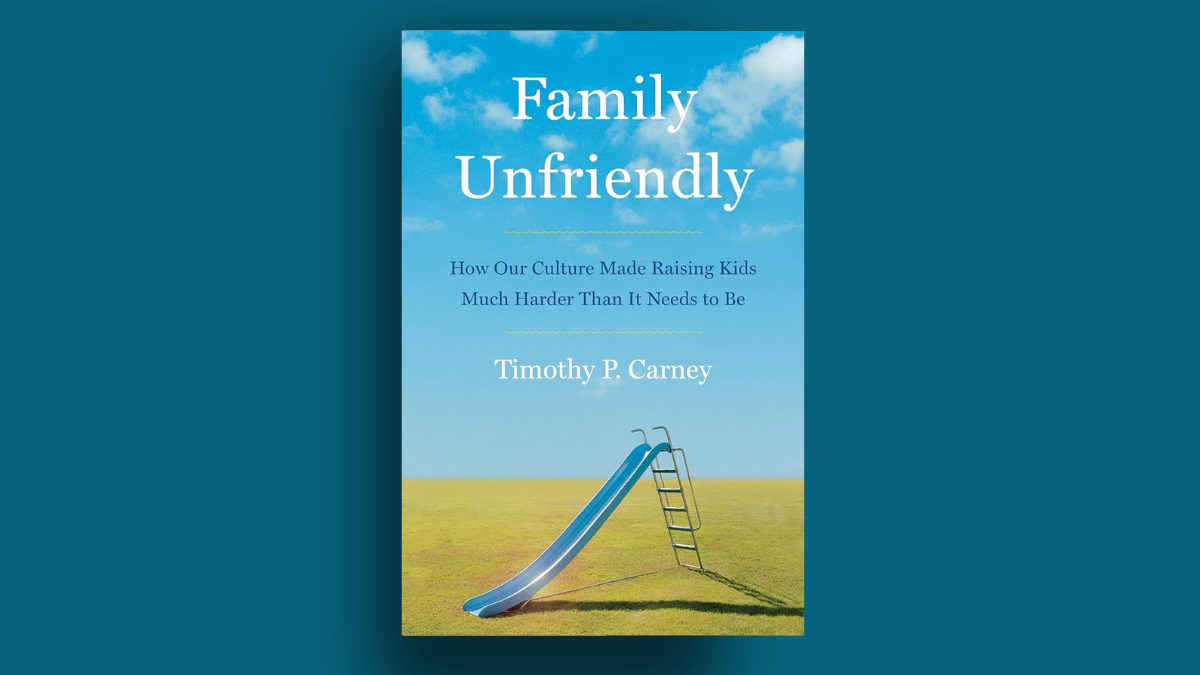
If you want to know how society is shifting, just look to pop culture. Movies, books, television, and music give us insight into how we as a people are progressing—or regressing. After listening to several top songs of 2015, I kept going back to one song in particular because of its sober depiction of a trend plaguing today’s postmodern generation—the increasing prevalence of despair and the sexual distractions that feed it.
The song is Hozier’s “Someone New,” and the video, starring “Game of Thrones” actress Natalie Dormer, depicts the sad and isolated life of a woman unable to truly connect with anyone around her. She drifts from one titillating, ephemeral relationship to another, imagined or real. Life is a string of sexual encounters, like seconds ticking off the clock—bodies and feelings merged in a moment, but it doesn’t last. It’s gone in a breath, and afterward she’s alone, drained, and bored because she has no real connection with anyone.
Why? Because she has no sense of herself as a spiritual creature and no awareness of what it really means to love or how to form genuine relationships. There is only the distraction, the desperate need to feel something, anything. Sex—and the anticipation of the thrill—is all she has. Her life is desolate, littered with glittering strange delights, devoid of the warm, fulfilling familiarities of love.
Sex Can’t Feed Your Soul
As Dormer walks through crowded bars and along darkened streets imagining sex with strangers, Hozier sings of love (or at least a little bit of it), but there is no love in a world where nature rules and we live only for the moment, feeding our animal appetites. There is only power over prey as we use and even abuse others to fill our emptiness. But it doesn’t work because sex can’t satisfy our starving souls.
If all we have is a moment before moving on to the next, then we have only sex—loveless, dehumanizing materialism. Nothing else. Love plays no part in a solitary flash of passion because love is rooted in so much more—in the spirit, in the infinite, in ties that bind. There can be a beginning of love in the moment and the tender words that preface it, but if that’s all there is, if it is quickly abandoned for another, there is no real connection, no flicker of time when we cry, “You love me!” That’s an illusion. That’s despair.
Hozier’s song is a brilliant, pathetic portrait of a significant part of today’s generation (and I’m including all ages, not just millennials). One YouTube commenter accurately called it Tinder’s theme song—isolated people looking for connection but finding only momentary thrills that leave them empty and, more often than not, leave those who foolishly fall for their manipulations broken and hurt, confused about what happened between the flood of passionate communications—the poetry, the songs, the gentle words of knowing—and the cold, distracted silence after the moment has passed.
It’s Your Fault You Feel Abandoned When I Abandon You
Hozier touches on this point at the beginning of the song when he tells one of his lovers she should have known the truth about him: “Don’t take this the wrong way, you knew who I was with every step that I ran to you, only blue or black days, electing strange perfections in any stranger I choose.”
He places the blame for any misunderstanding about the “relationship” on the woman, as if it’s her fault for feeling abandoned afterward, as if she was wrong for wanting more. Didn’t she realize he only “ran” to her in need—when he was lonely, tired, or bored—that she was just a stranger to him anyway, that he was non-discriminating in his choices, that she wasn’t special, that she was just a number, that it wouldn’t last? Didn’t she see him for what he was? If she didn’t, then she’s the fool.
You can just hear her yelling, “But this isn’t right!” His response is chilling: “Honey, there is no right way.” There’s only need and desire—my needs, my desires, “And so I fall in love just a little, oh a little bit every day with someone new,” a refrain he repeats over and over again—a grinding denial of moral accountability that cruelly screams, “All is vanity!” All is despair.
When there is no right way, when there is only ravenous need, there is no connection, no love—not of other people and not of one’s self. There is only the thrill, only amusements increasing in strangeness to distract us, only the drive to use people as tools to keep the engines going as we push our way through the drudgery of life.
“There’s an art to life’s distractions,” Hozier sings. “To somehow escape the burning weight, the art of scraping through.” Strange that he would use the term art—as if there’s some elegance, some nobility, to it—but maybe there is an art, or at least a talent, to using people, brushing against them like pools of paint to fill in the empty canvas of your life.
Contrast Hozier’s Love with Aretha Franklin’s
Of course, different people have different distractions—work, fame, drugs, alcohol, art, sports, even religion for religion’s sake—but sex is probably the most common, and certainly the most exciting, as “some like to imagine the dark caress of someone else, I guess any thrill will do.”
Living for the thrill, the rush of blood, the burning lips—this is the essence of our age, which is why it’s awash in isolation and depression. Despite being in contact with so many people, especially through social media, we aren’t actually connected to others in a meaningful or authentic way—a point made by psychiatrists Jacqueline Olds and Richard Schwartz in their book “The Lonely American: Drifting Apart in the Twenty-First Century.” When people experience an “overexuberant individualism” in which they don’t relate in an honest, loving, committed, and lasting way to others, despair is the result.
What I appreciate most about “Someone New”—and I do think it is a superbly written commentary on our social condition—is that it doesn’t necessarily glorify this life of despair (at least I hope not). One revealing point is when Hozier confesses to waking “at the first cringe of morning, and my heart’s already sinned.”
Then he adds, “How pure, how sweet a love, Aretha, that you would pray for him.” The reference is to Aretha Franklin’s famous song “Say a Little Prayer,” which was released in 1968. The contrast between the two songs is striking.
While Hozier sings about waking to sin and thinking of being with someone new, Aretha begins the day very differently: “The moment I wake up before I put on my makeup, I say a little pray for you… forever and ever, you’ll stay in my heart, and I will love you forever and ever, we never will part.” “Someone New” and “Say a Little Prayer” couldn’t be more different. One is fleeting. The other is forever. One denies faith. The other embraces it. One is bitter. The other is so, so sweet.
Hozier either scoffs at Aretha’s committed love as being pathetically naive, as if it’s never been real—reflecting the jadedness of this generation about lasting love—or he simply doesn’t think he could ever love like that. He’s cynical. He’s the “sinner,” the one who falls in love just a little bit every day with someone new. Aretha is the one who longs for love that’s pure and enduring. Hozier accepts with individualistic pride (or hopeless acquiescence) the brutish assumption that love is a short-lived dark urge. He gives into it, even bows to it.
Aretha’s generation still believed in moral clarity, absolutes, right and wrong, and, yes, love that lasts forever, although the sixties definitely saw these core values fray. The hallmark of today’s culture is transience, shallow displays of affection, lips touching then parting, one partner after another—or many at one time—distractions, thrills, raptures of rage.
Surrender to Sin, Don’t Fight It
Generations past certainly didn’t live perfectly, but today’s generation with its cynicism, acceptance of deviance as normal, abandonment of self-governance, and wild embrace of life’s dark impulses isn’t any better. It’s not offering hope in the struggle against sin. It’s leading us to despair in surrender to it.
As I watched Dormer’s poignant performance in the video, I was touched—no, humbled—by the truth revealed in the darkness. The truth of despair. It was a needful reminder of what’s really lurking in the long shadow that follows pleasure’s glossy fickle facade. It’s a reminder for us all, because many of us have walked this path. We’ve been tempted by it, by the siren song of fleeting moments, the fascination of something shiny and new.
But all it brings is heartache. That’s what lasts—not the moment, not love, but despair, the pain of being left breathless from the rapture, assuming, hoping, we were connecting with someone who said he understood us, who told us to hold on because life could be so good by his side, who let us feel for them—feelings that were real.
Then they’re gone looking for someone new, and we’re left with the gasping realization that it was just a passing moment that wasn’t even real. We long for the fire that raged so brightly, but now we have only ashes that crumble at our touch. We’re stripped bare, raw, grieving the loss, but they don’t even care.
How foolish to believe the lies (our own and theirs), but so many of us are deceived by the promise of connection, by the possibility of being understood and known by another, by hope that the boredom will finally disappear and we will know what it feels like to be fully alive.
But it’s not connection we find. We wake the next morning to lifeless eyes and distance, to the sinking realization that we played the role of mere distraction, that all we experienced was an empty moment, full of loneliness because those who live for moments are never in them. They’re never, ever present. Their touches are an afterthought. Even as they kiss, they’ve moved on already, living for possibilities, looking for someone new.
We wake feeling broken, depressed, used, and no nearer to “feeling alive” than before we stepped into that moment. We wake to another day of loneliness; we lie down alone to another night of despair.
Real Love Conquers Despair
The answer to overcoming despair, to escaping the brutish, nasty, solitary life of the autonomous, natural man, is the very thing Hozier sings about repeatedly and mockingly—love. But it’s real love, love rooted in our humanity, in the Imago Dei, and it can’t be known in a world of fleeting subjectivism and amoral individualism. It can’t be separated from objective truth and goodness, because morality is an expression of love. It can’t be found by those living for the moment, because it’s spiritual, not material, it’s eternal, not fleeting, it’s infinite, not finite, it’s selfless, not selfish, it’s about giving, not taking.
If we choose to live as pagans of the good times, as Hozier said in his 2014 hit, “Take Me to Church,” abandoning any sense of right and wrong and commitment to other human beings with eternal souls—people who deserve our love and respect—then our lives will be solitary as we find ourselves forever alone. Life will be brutish, as we know only the cruelty of using others to meet our needs.
We will know nothing of the richness of intimacy and love, because we will cling to the poverty of selfishness. We will see little of beauty because we will walk along the dark underbelly of life, soiling ourselves with the nastiness, the ugliness, of sin. More likely than not, our lives will be short, our relationships will end quickly, our work fail to satisfy, our hearts hardened to all the tenderness we could have known if only we had loved.
Philosopher Soren Kierkegaard once said that the greatest hazard of all is losing one’s self, but it happens quietly, as if it were nothing at all. We just slip away. No other loss can occur so quietly—an arm, a leg, or five dollars are sure to be noticed.
But not the loss of self to despair. It happens in silence, between the tick and the tock of ecstasy. It’s then that we lose ourselves. We don’t notice because we’re not aware of our real need of love and redemption. We’re too busy looking all around us, scanning every face, every shadow, every dark corner.
We lose ourselves when we’re looking for someone new. We lose eternity in a moment. Like Dormer in Hozier’s video, all we have is despair, tears in our eyes, makeup smeared on our cheeks, heaviness in our hearts, and no one by our side whom we bend our head to and promise, “I’ll love you and only you forever.”









